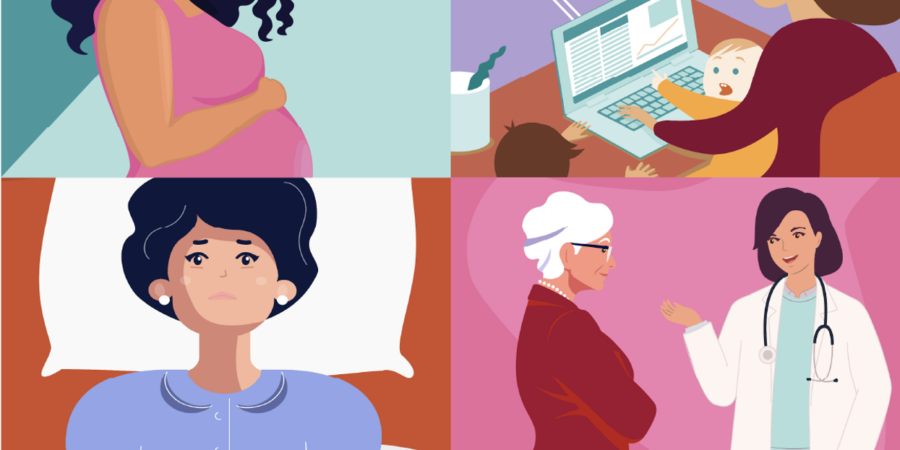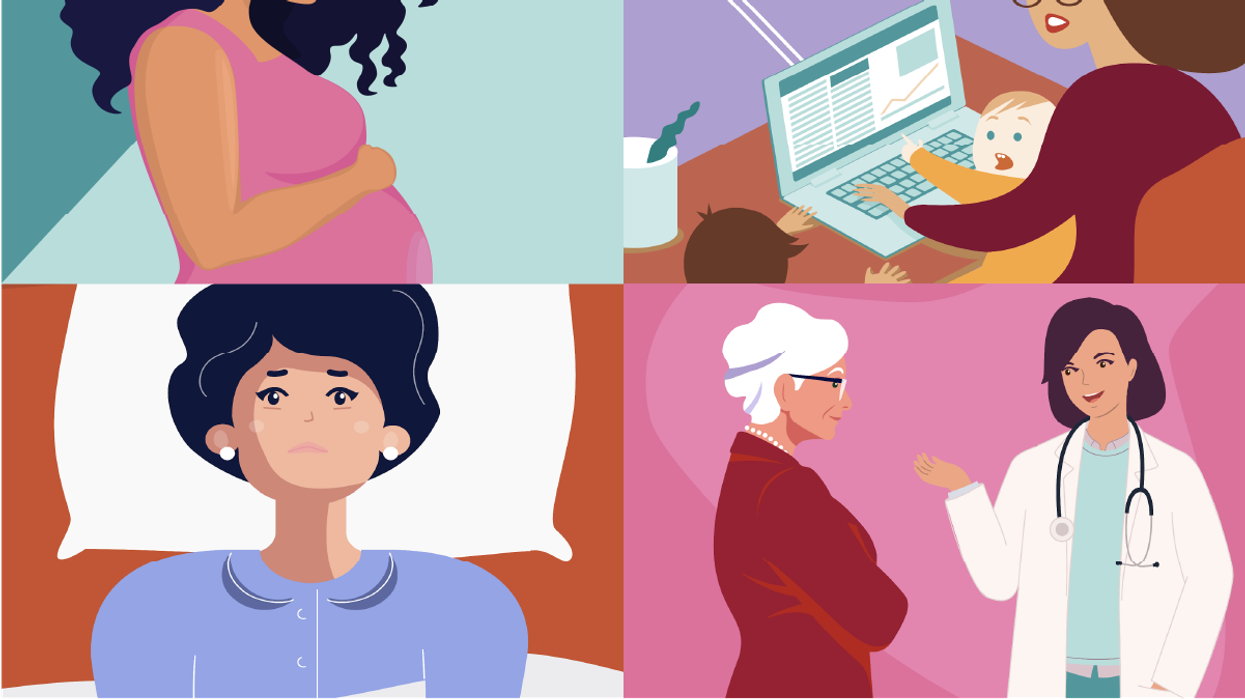
Medically reviewed by Kelynne J. Oristel, R.N., GNP, APRN, Ph.D. (hon.)
Aging is the biggest risk factor for heart attacks, stroke, cancer, diabetes and other chronic health conditions. And obesity can make the aging process happen faster. That puts women who are living with obesity or overweight at even higher risk for mental and physical health issues as they get older. As a result, obesity may be slowing gains in life expectancy in the U.S., resulting in shorter lives for U.S. women in particular.
Obesity can also affect our bodies differently as we age. Let’s take a look at how obesity affects us in the different stages of our lives.
35-45
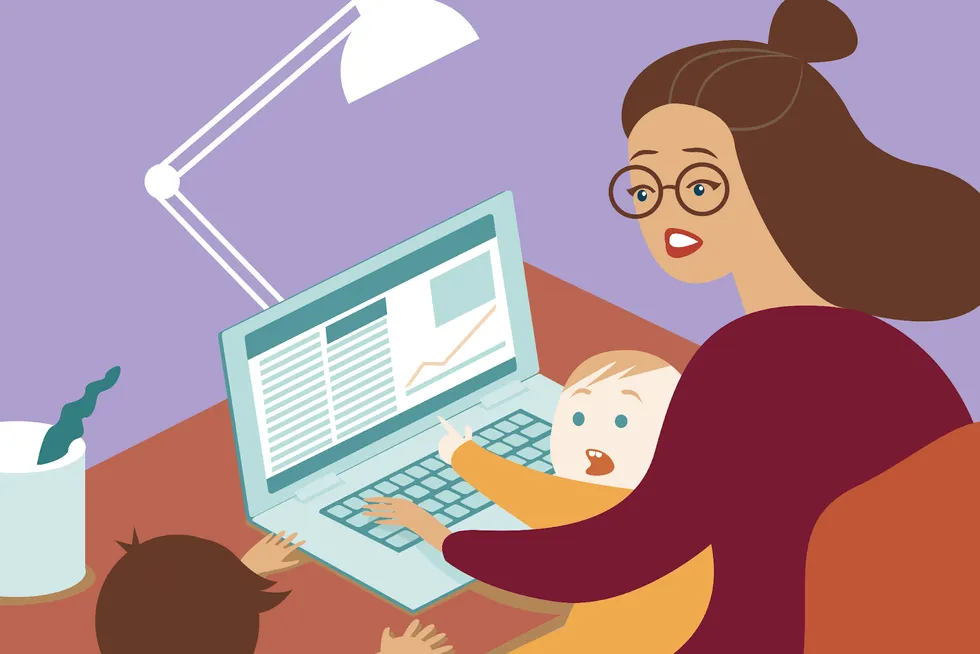
- Obesity at this age can cause you to develop chronic health conditions often associated with older individuals, such as high blood pressure, high cholesterol, Type 2 diabetes, asthma, sleep apnea, gallstones and gallbladder disease.
- Obesity can increase the risk of infertility threefold by preventing ovulation and interfering with fertility treatments, such as in vitro fertilization.
- Carrying extra weight puts extra inflammation and pressure on your joints, which leads to osteoarthritis around the knees.The longer you carry excess weight, the more it can damage your joints.
- The stresses of juggling work and family life can leave little time for healthy eating and exercising, leading to the risk of weight gain.
- Obesity and overweight can worsen depression in younger individuals.
- Women taking medications for mental health concerns — such as antipsychotics, mood stabilizers and antidepressants — could experience overweight or obesity since weight gain can be a side effect of most those medications
- Previous pregnancies can contribute to obesity (see more below).
Pregnancy
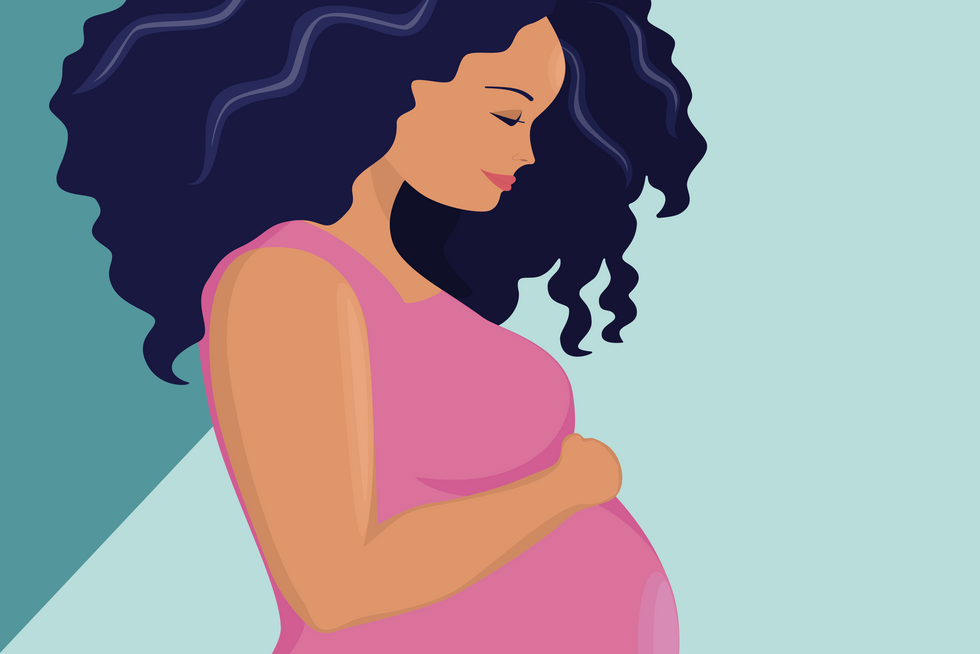
- Pregnancies can increase the risk of having obesity or overweight. Losing pregnancy weight after giving birth can be difficult, as women may shift energy to caring for children and don’t have as much time to exercise and eat healthy diets.
- If women become pregnant again before losing weight from previous pregnancies, that increases their risk of overweight or obesity after giving birth.
- Hormonal changes during pregnancy and the postpartum period can also influence appetite and body weight, and therefore can contribute to overweight and obesity.
45-55
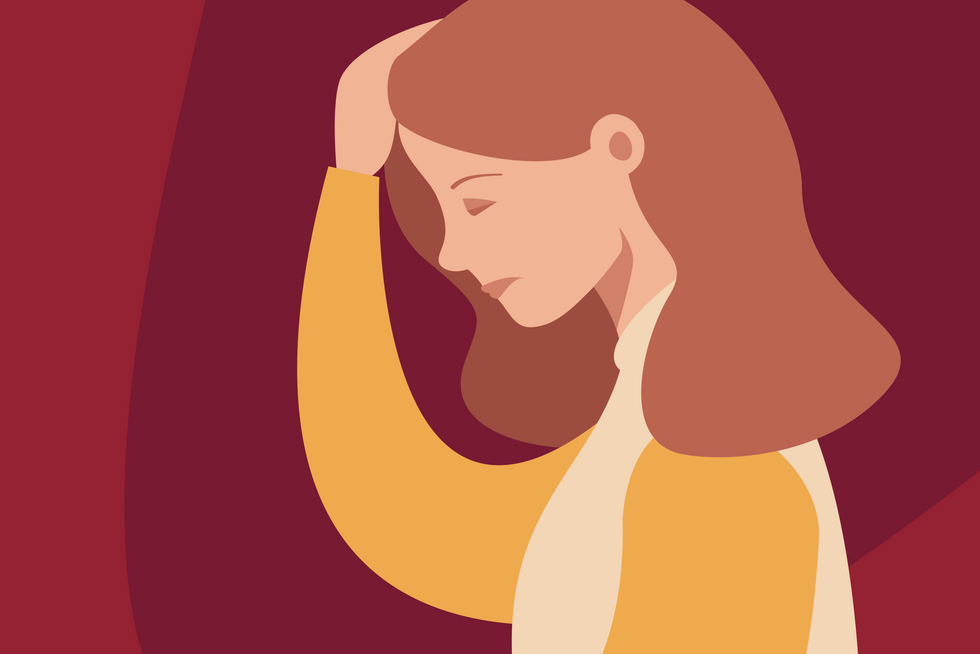
- From 45-55, when most women are going through perimenopause and menopause, their body composition, hormone levels and metabolism often change. These types of changes tend to be associated with an increased risk of gaining additional weight.
- Women with obesity and overweight may find it even more difficult to lose weight as fat tissue begins to redistribute. Before menopause, women have more fat tissue in the hips, thighs and buttocks. As menopause approaches, fat can shift to the abdomen. This type of fat, known as adipose tissue, increases the risk of Type 2 diabetes, high blood pressure and cardiovascular disease.
- Aging plays a role in weight gain, with muscle mass decreasing while fat increases.
- Depression can accompany perimenopause and menopause, and medication to treat mental health conditions can lead to overweight and obesity.
55-65
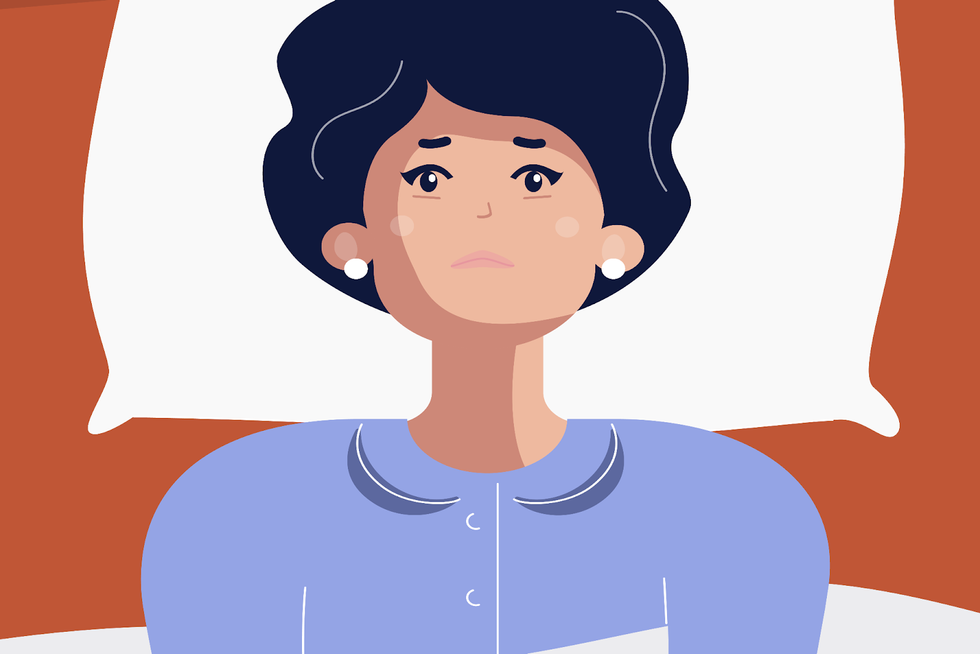
- Menopause is associated with a rapid decrease in estrogen, a hormone that helps to regulate metabolism, energy balance and appetite.
- Menopausal symptoms such as a lack of sleep, depression and a loss of muscle mass also can contribute to weight gain and make it more difficult to lose weight.
- As women age, obesity can increase the risk of cancer, arthritis and mood disorders, as well as heart disease.
- Obesity and overweight can worsen menopausal symptoms. More severe and frequent hot flashes have been connected to both conditions.
65+
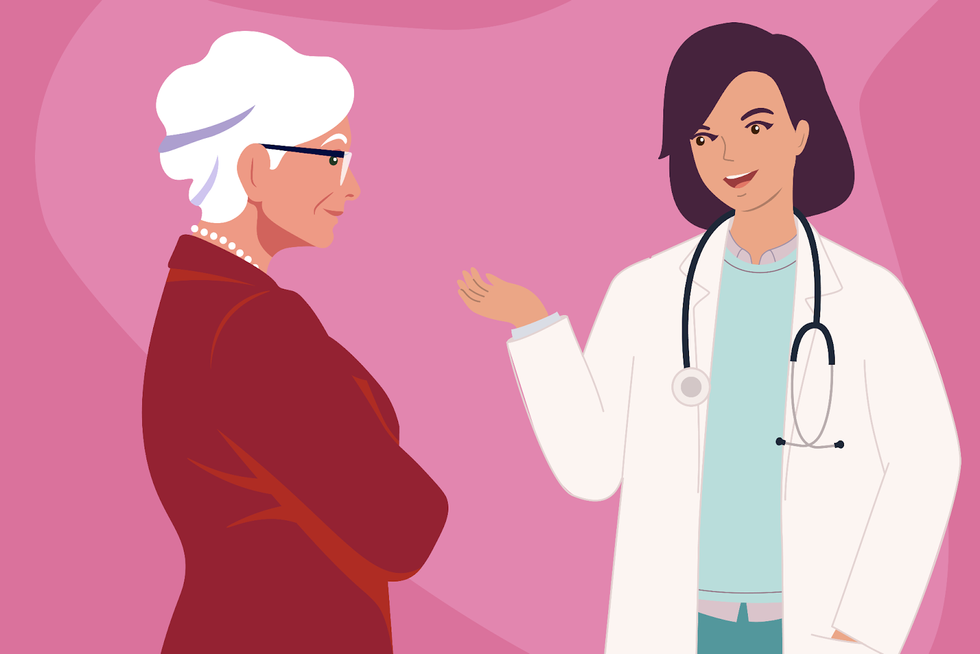
- While weight gain actually slows down after age 65, if women have obesity at a younger age and don’t lose weight before their 60s, the health consequences can be monumental.
- Age alone puts women more at risk for heart disease, stroke, diabetes, cancer, joint pain, osteoporosis and many other health conditions, and overweight and obesity can make the risks even higher.
- Bones begin to shrink and weaken, putting women at more risk for fractures. A loss of muscle diminishes overall strength, endurance and flexibility. Obesity increases the risk of osteoarthritis and joint issues, exacerbating these issues.
- Obesity can contribute to depression, leading to increased fatigue, stress and anxiety.
- Medications for health conditions that become more common with age, such as insulin-related medications for Type 2 diabetes and long-term use of corticosteroids for conditions like rheumatoid arthritis, can increase the risk of overweight and obesity.
- Exercise and physical movement can become more difficult as a result of aging — and obesity makes it even harder.
- Obesity can increase the risk of developing dementia.
What can women do if they are living with obesity?
There’s no one-size-fits-all approach to managing obesity. Women living with obesity should consider a continuum of care that addresses all aspects of the condition. Good nutrition, physical activity and mental health support are vital for all individuals, and medication and or weight loss surgery can be considered as well, if appropriate.
Addressing the disease of obesity as a younger adult can decrease the risk of mental and physical health issues as you age. Talk to your healthcare provider to develop a care plan to best meet your needs.
This resource was created with support from Novo Nordisk.
